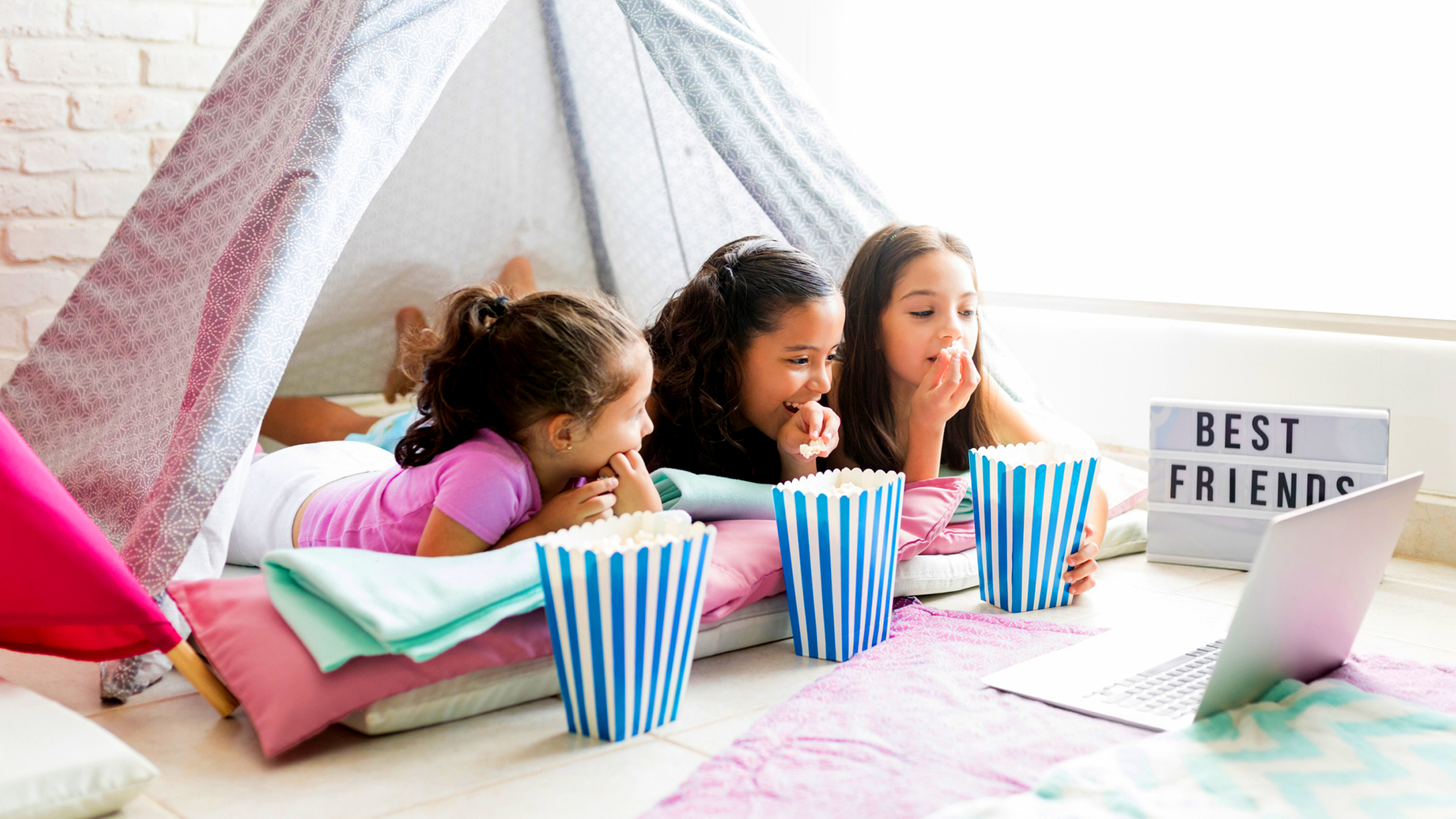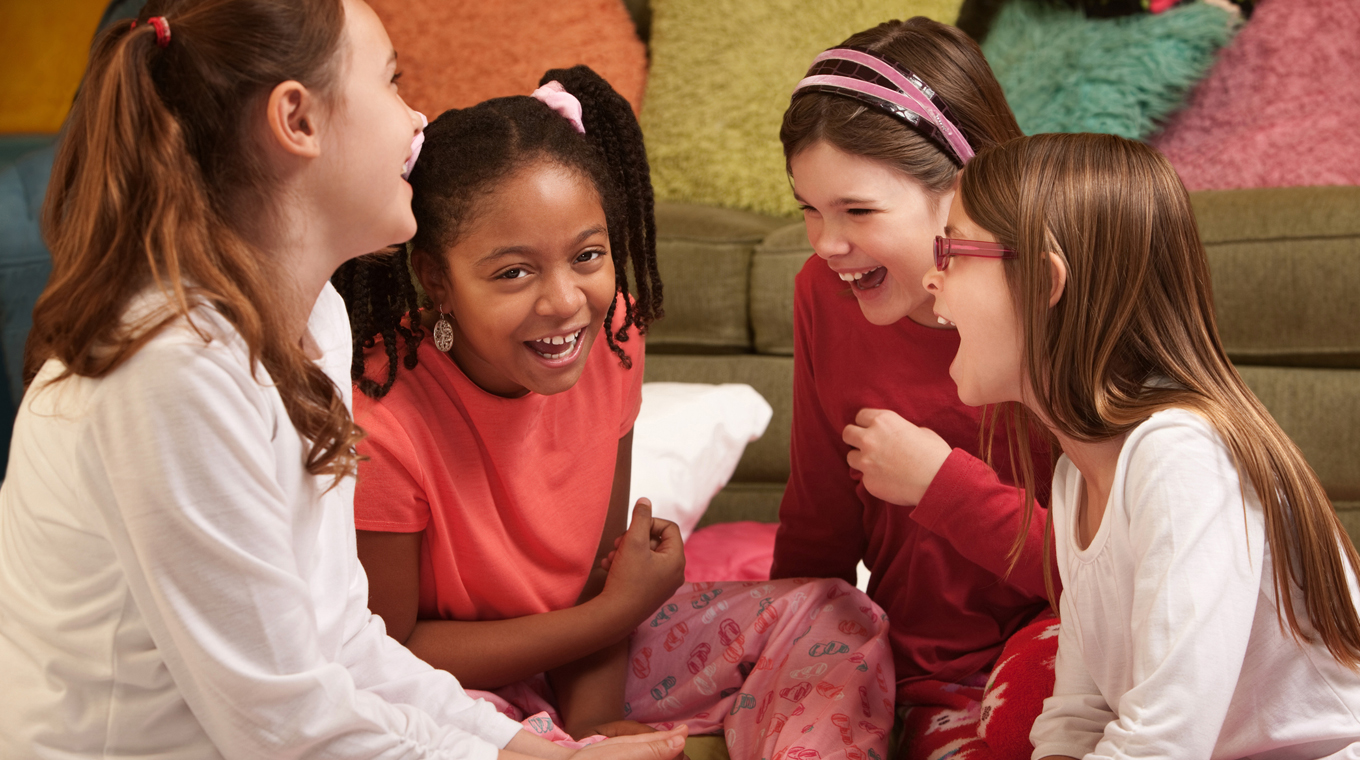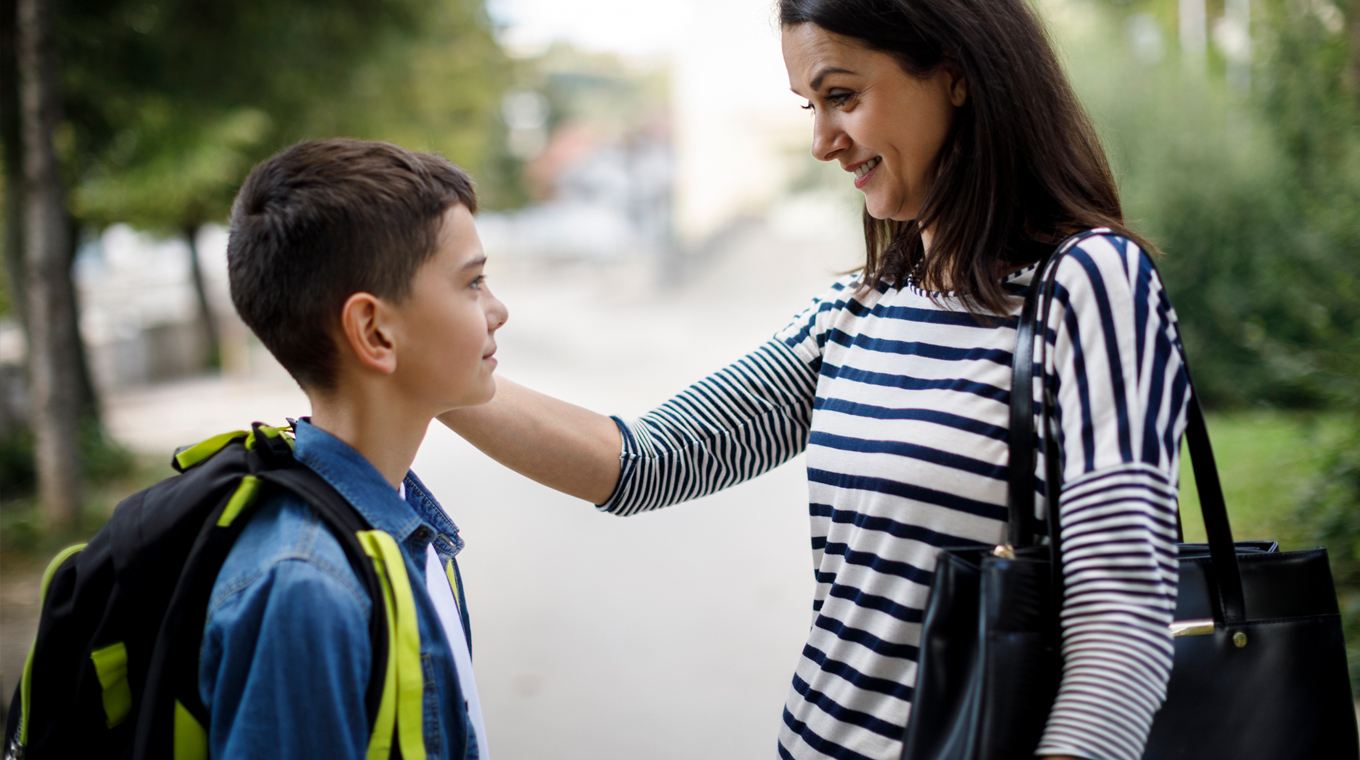
In this article
Is your child ready for their first sleepover? There are no clear-cut rules for when a child is absolutely ready for their first kid sleepover away from home. Some 4-year-olds could be ready to stay the night at a friend’s house, while some 12-year-olds might not be.
I was never allowed to sleep over when I was a child. My parents didn’t believe in sleepovers. But I always wanted to. I hosted many sleepovers, but the idea of me sleeping over someone else’s just wasn’t something that my parents were willing to entertain. I’m not sure if it was a safety issue, a parenting technique, or if they simply didn’t feel that I was ready. It stuck because I don’t usually allow my girls to sleepover at other people’s homes, either.
Obviously, each situation is as different as each child is. The most important thing to consider, as a parent, is whether or not your child is comfortable staying at someone else’s house overnight without you. They need to have the social skills to behave and the emotional maturity to feel safe without you being there.
“My No. 1 requirement is that I know the parents personally but also, that my son would be old enough to tell me if anything doesn’t feel right and call me if they need me,” mom of two Bertha Tuskan told Mom.com.
Why kids like sleepovers

See the world from a different viewpoint
A new environment is a way for them to experience new things.
Friendship
Sleeping over with other kids is the perfect opportunity for children to bond with old friends and make new ones.
Pushing boundaries
While it’s a big step for you to let your little one out of your sight overnight, remember it’s a big deal for them too. A kid sleepover will allow your child to feel more independent and foster maturity.
Independence
Sleepovers are a great way for you and your little one to spend some time away from each other in a safe and controlled environment. They’ll have to learn to ask for things and advocate for themselves — and that’s a necessary part of growing up.
Earning trust
Trust is an important part of the parent/child relationship, and it goes both ways. Your kids are more likely to trust and respect you if you do the same. This will lead to a healthy open relationship between you both.
Fun
Having a sleepover at your friend’s house is just plain fun.
Parents’ concerns about sleepovers

iStock
Your child being out of your sight and having no control over their safety
Many parents are concerned by the lack of control they’ll have not only over their child, but over their child’s safety when their kids are at someone else’s house. We can’t always control what our kids do, the food they eat, their bedtimes, or their sleeping arrangements. This would be nerve-wracking for any parent.
Not knowing the parents well
Just because your kids are friends or in the same class doesn’t mean you know anything about the family. Knowing someone socially isn’t the same as “knowing” them. Extensively vet anyone your child will be spending an extended amount of time with.
“Sleepovers raise a whole array of emotional issues for children and parents: separation, sleeping in a strange place, playing by another family’s rules,” pediatrician Dr. Perri Klass wrote for the New York Times. “This is a case where you really have to know your own child, the other family, the whole situation — and the other family needs to know about your child, too.”
Gun safety
Who doesn’t worry about gun safety in today’s world? It’s always a good idea to ask the parents if they have a gun in the house and, if they do, how do they keep their gun locked up? Don’t be afraid to ask the direct, important questions. Then, make an informed decision.
5 signs that a child is ready for a sleepover
1. They’re excited
Your child is excited at the thought of a sleepover and can get through the night without getting scared, crying, wetting the bed, or having nightmares.
2. They’ve got a friend
Your child has a friend that they get along well with, and is comfortable and adept at socializing with their family.
3. They’re brave
Your child isn’t afraid to ask other adults for help and advocate on their own behalf.
4. They’re independent
Your child can be separated from you for several hours without freaking out.
5. They can take care of their own basic needs
Your child can get ready for bed by themselves, brush their teeth, shower, and get ready for bed without help from anyone else.




